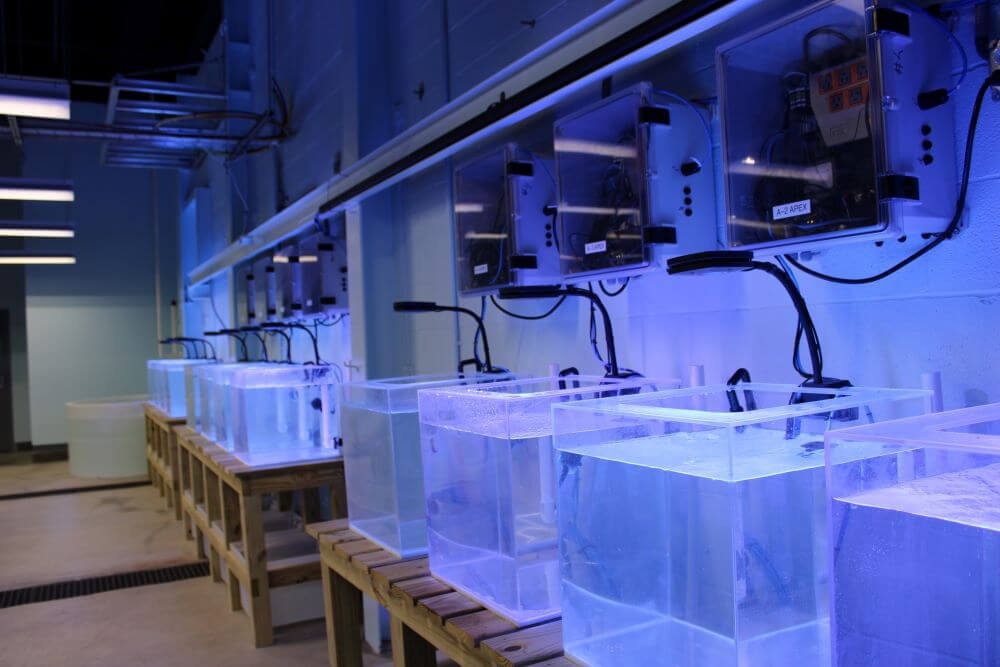
Dauphin Island Sea Lab has opened a new multi-stressor wet lab that allows researchers to study the effects of multiple environmental changes at the same time.
Most such facilities can study the effect of changes on marine life by varying only one condition at a time. The new facility at the Sea Lab allows researchers to change oxygen pH, salinity and temperature at the same time.
“This could be called a time machine, because we will be able to expose marine organisms to future conditions of varying levels,” DISL Senior Marine Scientist Dr. John Lehrter explains. “When you start to expose animals to multiple stresses, the threshold identified for one stress may change based on the combination of stresses exposed at one time.”
DISL Executive Director Dr. John Valentine added, “We’re going to have nutrient loading and we’re going to have warmer temperatures and we don’t know the consequences of those factors with our existing stressors to drive the productivity of the Gulf of Mexico. We’re now set to do cutting-edge research that has global significance, too.”
All of the Sea Lab was built on the site of a former U.S. Air Force base, and the new wet lab is housed on the original generator building.
“Giving a nod to the fiscal stewardship of DISL, we were able to take an existing campus asset, and with support from the Alabama Legislature, transform it into a state-of-the-art research facility that will provide students, faculty and researchers from the Marine Environmental Sciences Consortium with opportunities not found anywhere else,” says Valentine.
First up for the wet lab are projects studying the effect of water quality changes on phytoplankton productivity and on oyster production.
Funding for the project came from multiple sources including U.S. Department of Treasury/Alabama Department of Conservation and Natural Resources Centers of Excellence Program under the Resources and Ecosystem Sustainability, Tourist Opportunities, and Revived Economies of the Gulf States Act, also known as the RESTORE ACT.
The Sea Lab offers research opportunities for students and faculty at some 22 member institutions.



